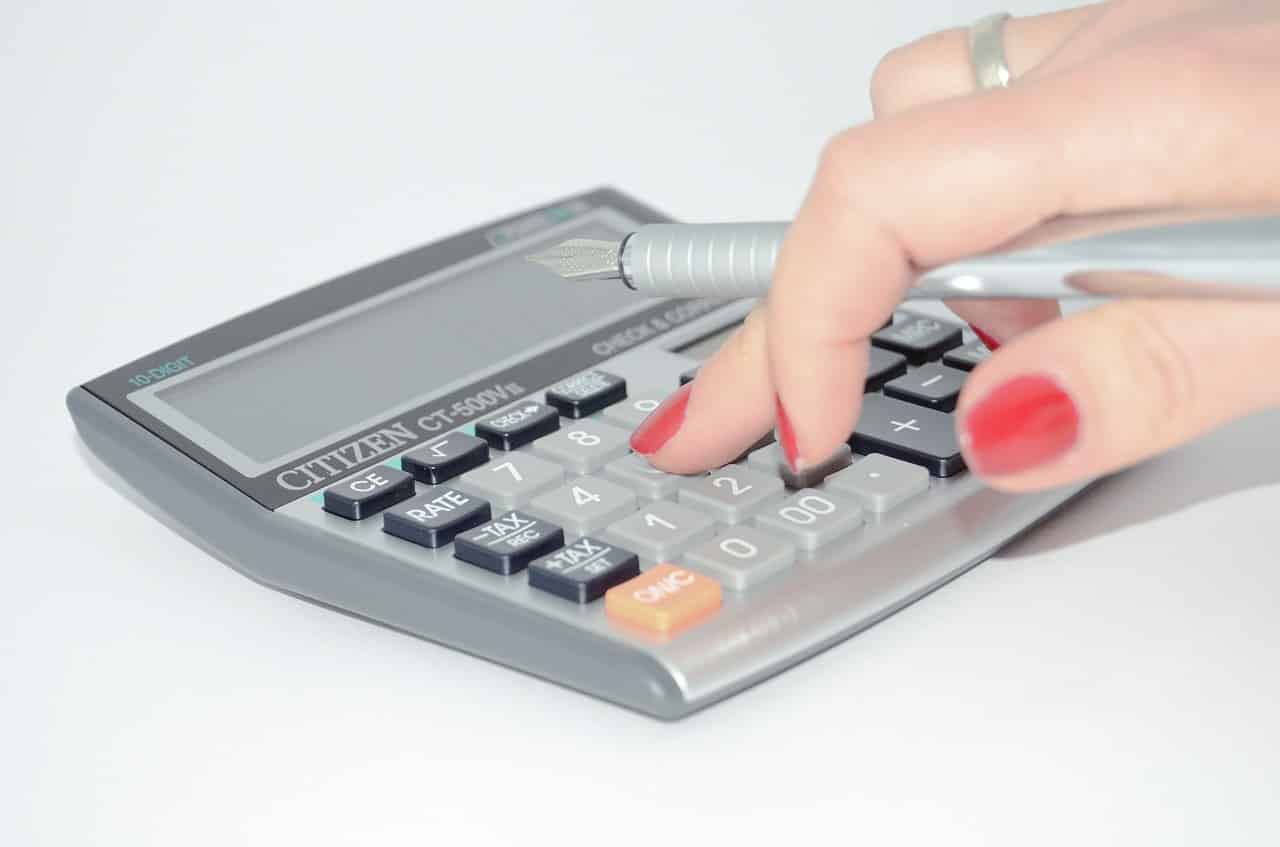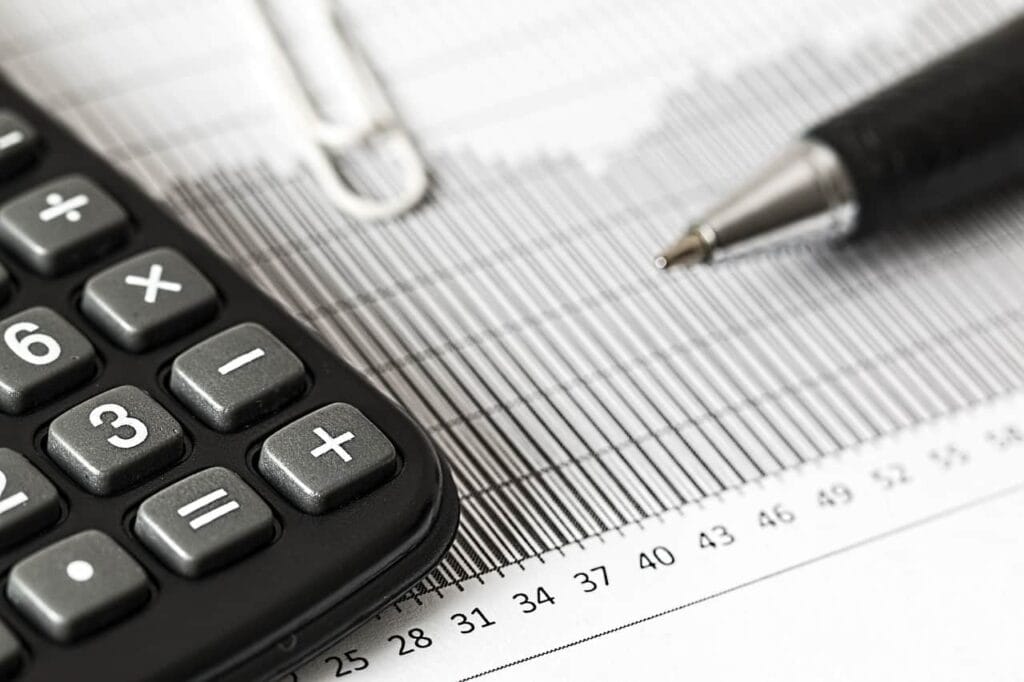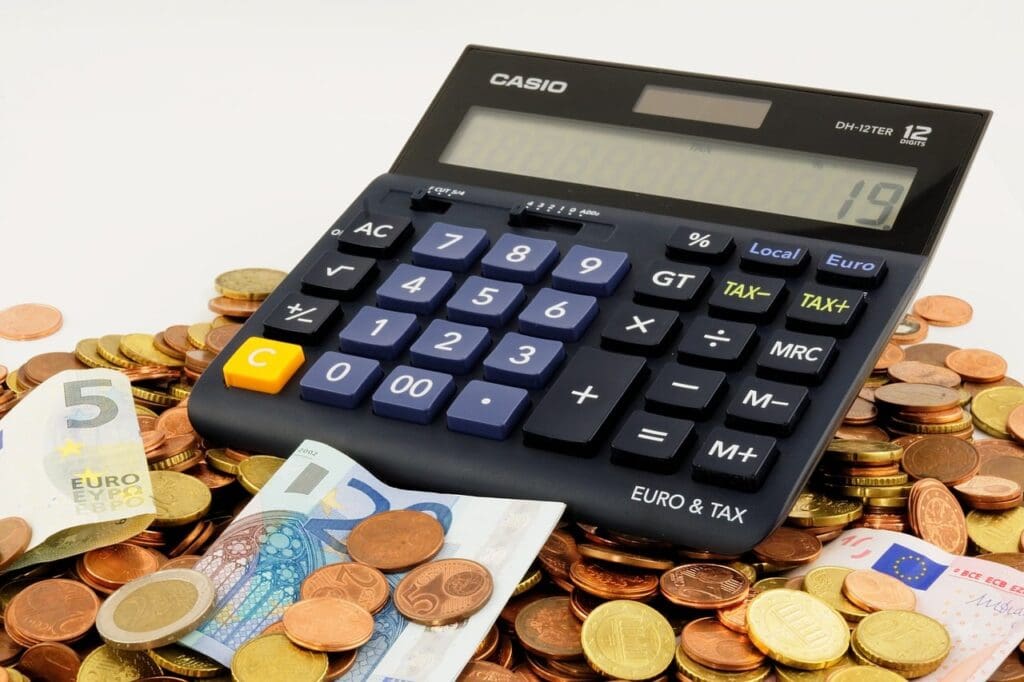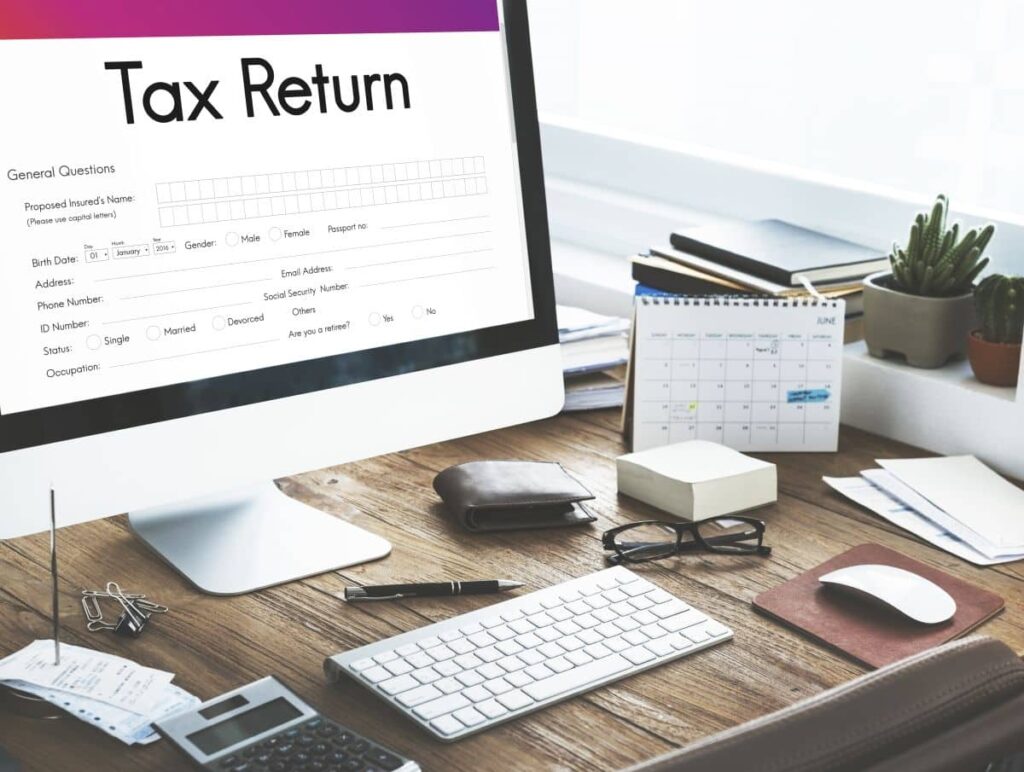Real Estate Professional Tax Return and Deduction Checklist
You’re a real estate professional, but you might not know what your tax obligations are. If you want to be up-to-date on the latest laws that affect your profession, then this blog post is for you! In addition, we’ll share some deductions and expenses that can help lower your taxes, so keep reading.
Tax season comes along every year before you know it. But don’t give up! It’s a wonderful time of year if you know how to enjoy it. And our professional tax advisors know how to get the most out of your tax return.
The most important thing is to figure out all of your expenses and deductions related to your business as a property manager or salesperson so that you may collect the biggest return possible.
As a real estate professional, you will almost certainly receive an income statement including all of your pay, wages, allowances, and bonuses for the fiscal year, which will serve as the basis for your tax return. The deductions come next:
Can I claim any deductions?
Any money spent on products or services directly relevant to earning your income throughout the financial year is deductible. You must have spent the money personally (not reimbursed by your company), and you must preserve a record of the expense, such as a receipt or invoice.
What tax deductions can I claim?
When you work in real estate, you can claim a variety of deductions, including:
- Advertising expenses (for example, through newspapers, letterbox drops, signage and bunting). If you earn a fixed salary, you cannot claim a deduction for advertising costs, and you are not eligible to get a commission.
- Expenses for a car if you need to drive for work-related purposes, such as attending open houses or inspections, or traveling between your employer’s offices (such as between your regular office and the head office to attend meetings)
- The cost of buying, maintaining, and cleaning work attire if it’s a required uniform that identifies you as an employee of your company (for example, if it has a logo)
- If you’re a commission-based salesperson or property manager, you can buy gifts like hampers, flowers, or a bottle of alcohol for work purposes (for example, for a customer).
- The piece of any marketing equipment you use for work, such as a digital camera for photographing properties.
- Self-education, training, or conferences directly connected to your field of work, such as obtaining a real estate agent license or certificate.
What can’t I claim?
Several important expenses are not deductible, including:
- Any enjoyment, such as taking prospective clients out to dinner, athletic events, or concerts (even if you discuss business)
- If your company supplies it, any tools or equipment, such as a laptop or camera
- Self-education and training are not immediately relevant to your area of work and are meant to assist you in transitioning to a different career, such as a law degree, in the future.
- Office clothing such as a business suit or comfortable shs, even if you only wear them to work
What records do I need to keep?
It’s crucial to maintain track of your finances, and it’s a good idea to set up an easy and dependable system to assist you to do so throughout the year.
Physical receipts aren’t required, and digital copies (such as a photo or an email receipt) are permitted as long as they can be read:
- The supplier name
- Expenses amount
- Goods or services nature
- Date the expense was paid
- Document date
You also don’t need to keep receipts for expenses under $10 (as long as these don’t cumulatively come to more than $200).
What happens if I fill out my tax return incorrectly?
To avoid penalties and perhaps punishment from the ATO, you must take great care while putting together the material and accompanying documents for your tax return, and only claim valid deductions.
However, we all make mistakes, and if you discover you’ve made any false or unjustified claims, you should inform your accountant right once. They will work with you to make the necessary changes.
Real Estate Tax Tips
Real estate taxes can be overwhelming, with multiple forms and confusing numbers. This blog post will give you a few tips and tricks to make sure you’re not overpaying on your real estate tax!
Your tax benefits may be determined by the status of your property.
Before you file your taxes, understand the status of the properties in your portfolio. If you’re not currently renting your property to anyone, ask yourself – is your property available for rent? As this can impact how tax affects it.
Consider the following:
- Do you have and are you showing a clear intention to rent the property?
- Are you advertising your property?
- Is it set in line with all the other properties in the area?
- Are your rental conditions reasonable?
If your answers to these questions are all “yes,” then you may be able to claim a deduction for your rental property. Just remember to always prepare the supporting documents for your claim or speak to your accountant.
Ensure that all costs for repairs, renovations, and construction are correctly recorded.
Keep track of all of your costs and investments on each of your properties, as these may qualify you for tax breaks.
For example, did you know that you can deduct 2.5 percent of your building costs for the first 40 years after the project is completed? So, if you had to pay for initial repairs after purchasing a property or had to repair damages caused by renting it out, you can deduct the expense.
If the former owner claimed capital deductions for the construction of your new home, you may be able to obtain these facts from them so that you may calculate the deductions you’re entitled to. You can also seek professional assistance in estimating construction costs.
All construction costs, such as expansions, alterations, and structural improvements, may be eligible for capital works deductions, therefore keep track of all receipts.
Take note of your capital profits and losses
The difference in cash worth between when you bought and improved a property and what you earn when you sell that property is referred to as capital gains or losses. It’s critical to get these numbers right when completing your tax return because they affect your deductions.
If you make a capital gain, you must include it in the income year in which it was made. A capital loss, on the other hand, can be carried forward and deducted from future capital gains.
When investing in real estate, you must ensure that you are tax-savvy and that all gains and losses are correctly recorded; this will make tax time easier for you.
Organise your files
Keeping a precise account of all your revenue and expenses, whether you’re a buyer, seller, or owner, is an important step in planning for the end of the financial year.
Organizing your paperwork throughout the year rather than having to locate them all when tax season comes might be stressful, and you may even miss some.
Try scanning all transaction receipts to store them all in one place, including any loan documentation, buy and sale contracts, and other expenses.
What important is that you have everything ready, whether you utilize a simple spreadsheet or professional software. You may save the hassle of collecting everything during tax season this way.
Top 12 ATO real estate tax deductions that are often forgotten

According to data from the Australian Taxation Office (ATO), real estate agents claim an average of $8,634 in real estate tax deductions each year. This is more than three times the national average of $3,413 and ten times what shop employees earn.
As a real estate agent, there are apparent deductions for work-related travel, advertising, mobile phone, licensing, and home office expenses. Many more deductions, however, are frequently ignored. We’ve developed a list of the top 12 overlooked ATO real estate tax deductions to help you maximize your tax return:
1. Greeting cards and gifts
If you’re an agent or property manager who is entitled to earn a commission, you can claim a deduction for gifts and greeting cards that you’ve purchased for work purposes, i.e. for your tenants, owners and suppliers.
Hampers, bottles of wine and whisky, gift vouchers, perfume, flowers, and pen sets are examples of these gifts. Unfortunately, tickets to the theatre, movies, plays, athletic events, amusement parks, and vacation certificates are not eligible for reimbursement.
2. Property presentation costs
You are eligible to make a claim for a deduction on property presentation costs if you have spent money getting a property ready for an open house but have not been compensated for those costs by your employer. This includes the expense of purchasing ornamental materials like flowers and plants as well as the expenditures connected with cleaning the home.
3. Advertising costs
A similar tax deduction can be claimed for the money spent on real estate advertising, but this can only be done if you are an agent or property manager who is eligible to receive a commision and your company has not already reimbursed you for the money you spent on advertising. This covers fees related with advertising in publications, dropping flyers through letterboxes, putting up signage, and putting up bunting.
4. Marketing equipment
If you are a real estate agent, you are eligible to claim a deduction for the portion of any marketing equipment that was used or purchased in the most recent fiscal year that was linked to your profession. This covers the cost of repairing any work-related equipment, such as drones, professional cameras, or virtual reality goggles, as well as any other associated charges.
If you purchased a piece of marketing equipment for less than $300 and utilised it exclusively for work, you are eligible to deduct the whole cost of the item from your taxes. On the other hand, you are eligible for a deduction for the item’s depreciation if it cost more than $300.
5. Tax agent fees
Did you use a registered tax agent or online service to prepare and lodge your tax return last year?
If so, you can claim the fees you paid in section D10 (cost of managing tax affairs) of your tax return. Additionally, if you meet with a recognised tax advisor, you can claim the fees charged and the associated travel expenses.
6. Handbags, satchels and briefcases
If you use your purse, suitcase, or briefcase to transport work-related things such as laptops, iPads, documents, and stationery to and from work, you can claim a deduction. It must, however, be used mostly for work and should account for a reasonable portion of your company’s revenue.
If you use your purse, suitcase, or briefcase outside of work, the ATO suggests keeping track of when you use it for personal and professional purposes. When tax season arrives, this will assist you in calculating the tax-deductible percentage.
7. Costs of self-education
When it comes to real estate tax deductions, self-education is sometimes disregarded. You can deduct a percentage of the course fees if you’re taking a work-related course that leads to a formal qualification.
The course must “keep or strengthen specific skills or information you require in your current employment,” according to the ATO. This means you can enroll in a marketing school to learn how to increase your rent roll or a real estate photography course. You should be able to claim the training if you can show that it will assist you build your real estate firm or career.
8. Industry publications and newspapers subscriptions
Subscriptions to industry journals and newspapers are one of the most generally overlooked real estate tax deductions. As a general guideline, the content of the subscriptions should be related to your responsibilities as a real estate agent. You can make a claim on real estate periodicals such as Elite Agent, Your Investment Property, AFR Weekend, or newspapers with property sections, for example.
Assume, however, that the property section of the newspaper is only published on Mondays, Wednesdays, and Fridays. You can only claim a tax deduction for those issues, not for the entire subscription, in that scenario.
9. Clothing, laundry and dry cleaning
You can claim on the purchase and upkeep of clothing that is unique and distinctive to your real estate agency if you are obligated to wear it. This could include branded blouses, slacks, shirts, jumpers, dresses, and skirts, as well as unique shoes, socks, and stockings that are specified in your office’s uniform policy.
To claim a deduction, you must show documented proof of your garment purchases, as well as washing and dry cleaning charges. You may also be able to deduct the expense of patching and altering certain items of clothes.
10. Donations
You may be entitled to claim a tax deduction if you donated $2 or more to an approved organization or registered political party in the previous fiscal year. If your donation is tax-deductible, it should say so on your receipt. Additionally, if you make a net gift of more than $150 to an eligible organization for a fundraising event, you can claim a deduction.
It’s worth noting that you can’t deduct a donation if you get something in return. If you were given raffle tickets or novelty products in exchange for a donation, for example.
11. Home office and WFH expenses

If you are able to work from home (WFH), you may be eligible to deduct a portion of the expenses incurred by maintaining your home office. The following are some examples of this:
- Equipment and furniture depreciation
- Calls pertaining to work
- Paper, ink, and stationery for printers are all available.
- Charges for internet use
- Heating, cooling, and lighting all require electricity.
If you bought any home office equipment or furniture for work purposes, you might claim a deduction, much like marketing equipment. You can also claim a depreciation discount if your equipment costs more than $300.
In reaction to the COVID-19 outbreak, many companies around the world implemented work-from-home policy in early March. If this describes you, you can deduct your work from home costs during tax season.
The Australian government has provided an expense calculator to assist you in this procedure. Furthermore, the temporary shortcut technique allows Australians who worked from home between March 1, 2020, and June 30, 2020, to claim an 80-cent deduction for each hour worked from home, with minimal record-keeping obligations. Note that persons who use this strategy for working from home cannot claim any additional expenditures.
12. Car expenses
If you use your car for work purposes, there are a few expenses that you can claim:
- Perform your work duties
- Attend work-related conferences or meetings away from your normal workplace
- Drive between separate jobs on the same day, e.g. travelling from your real estate agency to your second job
- Drive to and from an alternate workplace for the same employer on the same day, e.g. travelling between two different residential open homes
- Perform itinerant work—meaning you had shifting places of employment, e.g. you regularly worked at more than one site each day before returning home.
You can choose between a logbook method (example below) or a cents per kilometre method to calculate your deductions. You can also use the deductions app to keep track of pending deductions.
Ever think you’re paying too much tax? Tax Warehouse, Australian individual tax return specialists are experts when it comes to tax minimisation on your personal tax return. Contact us to get your personal tax return going on via www.taxwarehouse.com.au, 0407 418 209 or email us on [email protected].




















